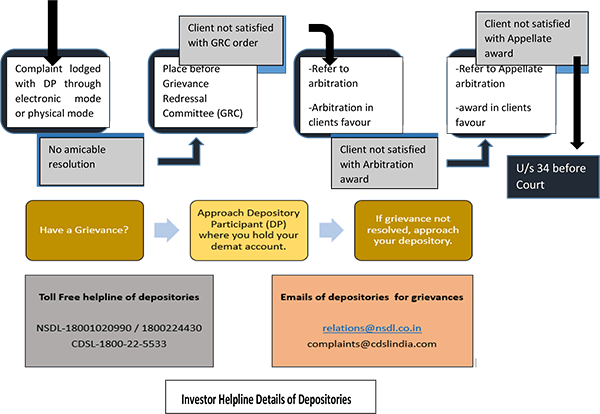If you study the history of stock markets, several investors have sought to optimize their gains and minimize losses by attempting to time the market.
The concept of timing the market revolves around the idea that investors should purchase stocks when their prices are low but showing signs of increasing, and sell when prices are high but appear to be declining.
However, successfully timing the market involves two crucial steps: making the right decision when to buy and then again, the decision when to sell. It is next to impossible to make both the decisions accurately.
It is a significant challenge to time the market correctly. Moreover, every transaction is associated with additional costs in the form of brokerage fees and taxes, which can easily erode any potential extra profits obtained from both the purchase and the sale.
Rather than attempting to time the market, it is advisable and beneficial to adopt a strategy of staying invested in the market over time. Embracing a Passive Investment approach, such as buy-and-hold, could potentially yield greater long-term returns.
Long-term investment strategy
Holding stocks for the long term involves purchasing and retaining ownership of a company’s shares for an extended period. This long-term investment strategy emphasizes a long-term perspective, where investors acquire stocks to hold onto them for several years or even decades. Rather than focusing on short-term market fluctuations for immediate profits, this strategy aims to participate in the company’s growth and development over a significant period.
The process begins with a careful selection of stocks to hold. Long-term investors typically look for companies with strong fundamentals, including stable financial health, a proven track record, potential for future growth, and effective management. These criteria are considered essential for the company’s long-term success.
Once stocks are acquired, the investor typically retains ownership through different market conditions, avoiding selling during temporary downturns or fluctuations. This often entails monitoring the company’s performance and broader market trends consistently, without engaging in frequent buying and selling as seen in more active trading strategies.
Long-term stock investment requires a different mindset compared to short-term trading. It necessitates patience, as the advantages of holding stocks for the long term typically unfold over an extended period. Investors must be comfortable with market volatility, understanding that stock prices may experience significant short-term fluctuations while potentially demonstrating steady growth over time.
This Long-term investment strategy is recommended for investors aiming to gradually build wealth without depending on immediate investment returns. It aligns well with long-term financial goals such as retirement planning or accumulating wealth for future generations.
Benefits of Holding Stocks for the Long-term
- Enhanced Long-Term Returns
Investing for the long term typically yields superior returns. Stocks tend to outperform over extended periods, providing substantial long-term returns compared to returns earned by short-term traders. Long-term stock investments mitigate the impact of short-term market fluctuations and offer steady returns. By concentrating on well-performing companies, investors can witness the growth of their portfolios. - Advantage of Compounding
Long-term stock investments provide the opportunity to leverage the power of compounding. Compounding involves reinvesting profits, such as bonuses and dividends, over time to generate even greater profits. Through long-term investment, investors can reinvest their profits into other promising stocks, thus generating additional income. This process allows investors to earn income from their initial investment returns, creating a compounding effect that can significantly enhance wealth accumulation over time. - Overcome Market Volatility
Short-term traders often find themselves constantly monitoring their portfolios, reacting to the daily ups and downs of the market. Conversely, long-term investors possess an advantage in this aspect. With a longer investment horizon, they naturally overlook the short-term fluctuations that occur in every stock’s lifecycle. Long-term investment strategies tend to yield favourable results and overcome the obstacles typically encountered in short-term investments. - Reduced Capital Gains Tax Rate
Opting for long-term investment (holding an investment for more than a year) can lead to substantial tax savings. Long-term investors typically face lower tax liabilities compared to active traders. Short-term capital gains tax is calculated based on regular income tax brackets, which vary from 10% to 37%. Conversely, long-term capital gains incur taxes at rates of 0%, 15%, or 20%, thereby offering significant tax advantages over shorter-term strategies. - Removes Emotional Influence
Emotions often play a significant role for individuals involved in the stock market. While many may declare themselves as long-term investors, their commitment may waver when faced with market downturns. Fear of further losses often prompts hasty withdrawals during market declines, inadvertently succumbing to short-term market volatility. In contrast, a long-term buy-and-hold strategy helps to mitigate the impact of such volatility, ultimately yielding superior returns. - Reduction in Brokerage and Taxes Expenses
Every transaction involving the purchase or sale of stocks incurs brokerage fees as well as various taxes and cesses. Unfortunately, brokerage costs in India are notably high. Day traders and short-term traders bear a heavier burden of brokerage fees due to their frequent buying and selling activities. Conversely, long-term investors who purchase stocks and hold onto them for extended periods avoid frequent trading, thereby saving significant amounts on brokerage fees, cess, and taxes.
Enjoy the advantages of holding stocks for the long-term
By now, you must have recognized the advantages of holding stocks for the long term compared to short-term investments. However, the suitability of each approach depends on market conditions, expert recommendations, and risk tolerance.
If uncertainty arises regarding your chosen stock or investment, it’s acceptable to sell and exit the position. Ultimately, the strategy you believe is best for long-term success should guide your decisions.
Start investing stock market and reap the benefits of long-term investments. Gainn Fintech provides a platform for stock investing, enhancing its profitability by offering investment opportunities in both Indian and US equities.
Unlike traditional models, Gainn facilitates direct delivery of shares to clients’ demat accounts, ensuring seamless corporate action processes. This enables Indian investors to access companies from the rapidly growing Indian economy and the world’s largest economy simultaneously.




